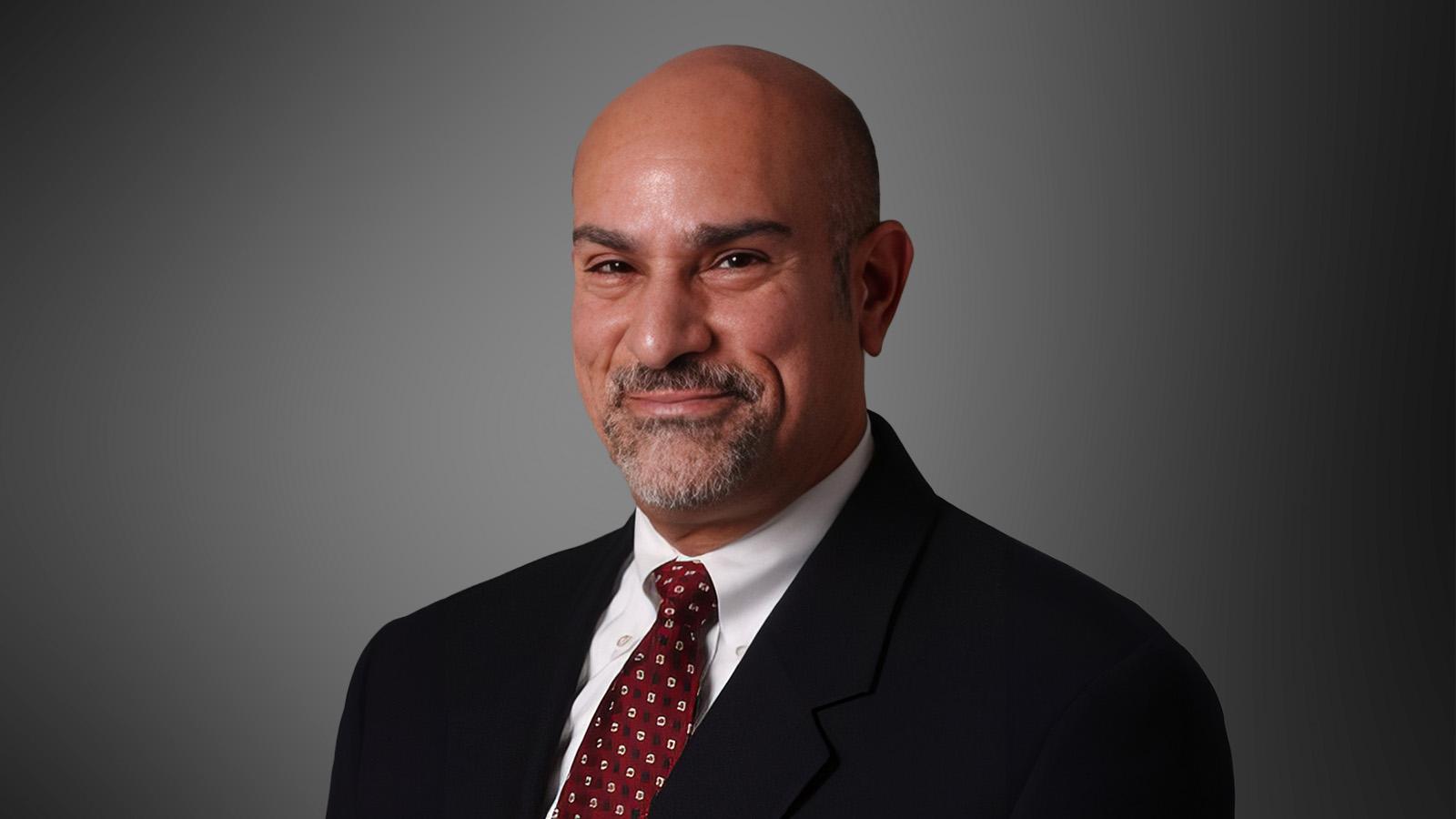Remembering Research Scientist Paul Manuel Aviles Baker
Dec 20, 2023 —

Portrait of Paul Manuel Aviles Baker.
Like those of many senior scholars, Paul M.A. Baker’s CV runs more than 30 pages, detailing a career’s worth of research, service, and accomplishments. It’s on page two, however, where you may get the strongest sense of Baker’s intellect. He accumulated an eclectic and impressive collection of degrees, five in all, ranging from zoology to theology and bookending his Ph.D. in public policy.
That kind of dedication to learning was quintessential Baker, as was his commitment to helping lift up those around him, especially junior researchers, said Victoria Razin, a senior research engineer at the Georgia Tech Research Institute. She became a friend and mentee of Baker’s after working with him for a year on voting machine accessibility.
“Paul was an incredibly thoughtful researcher, a kind friend, and an incredible mentor who built up the people around him,” Razin said.
Baker, the senior director for research and strategic innovation at the Center for Advanced Communications Policy, passed away suddenly last week after a brief medical emergency, leaving behind an enormous void for his family, friends, and coworkers, as well as a tremendous legacy.
“Paul was like no one else I have met,” said Regent’s Researcher W. Bradley Fain, CACP’s executive director and Baker’s boss since 2019. “To be able to describe Paul succinctly is impossible.”
From Zoology to Technology Policy
After graduating from college with a degree in zoology, Baker worked as an environmental scientist, in real estate, and as a publisher, in addition to later academic roles at George Mason University and Saint Mary’s College. He joined Georgia Tech in 1999 as a visiting assistant professor, where he taught Research Design for the Policy Sciences, American Government, and more.
Two years later, he joined CACP as associate director for policy research and became director of research four years later. In 2011, he was named associate director of the Center for 21st Century Universities, where he oversaw strategic policy initiatives and managed the Center’s policy-focused sponsored research projects. After three years, he returned full-time to CACP, where he was appointed senior director for research and strategic innovation.
In 2020, he took on a new role when the Center for the Development and Application of Internet of Things Technologies moved from GTRI to CACP. Paul became the organization’s chief operations officer, where he worked to further the Center’s mission to spur technology and policy innovation in the internet of things sphere.
“Paul was a wonderful advisor, helping me work through really complicated issues,” Fain said. “Every conversation was an opportunity for him to share knowledge.”
Kaye Husbands Fealing, dean and Ivan Allen Jr. Chair in the Ivan Allen College of Liberal Arts, said Baker was an accomplished researcher who was deeply committed to expanding technology and workforce accessibility for everyone.
“We worked together a few years ago on a project with my research assistant, Andrew Hanus, and Connie McNeely of George Mason University to broaden participation in STEM employment for people with disabilities, and he took the initiative to lead a workshop on how veterans could gain STEM skills. I will miss his keen insight, his passion for his scholarship, and his generosity.”
Regents’ Researcher Emeritus Helena Mitchell, former executive director of CACP, said Baker was the Center’s most published employee whose contributions at Georgia Tech and around the world will continue to be felt.
“He was an excellent researcher, a great networker, a man of passion, integrity, and knowledge,” she said.
She and Baker were close friends for over 20 years, frequently hanging out together before Baker moved to Canada to be with his husband. She said she will miss their wide-ranging discussions over cosmopolitans.
“He’s like a brother to me,” she said.
Promoting Equal Access
In each of his roles, Baker approached his work with enormous curiosity, rigor, and a genuine desire to leave the world a better place, said Nathan Moon, director of research at CACP, who worked with Baker for nearly two decades.
“Paul was committed to doing research that would promote equal access for all people,” Moon said.
It shows in his publishing record, where you’ll find papers such as “Wireless Technologies and Accessibility for People with Disabilities: Findings from a Policy Research Instrument,”; “E-Accessibility and Municipal Wifi: Exploring a Model for Inclusivity and Implementation,” and “Digital Tech for Inclusive Aging: Usability, Design and Policy.”
In the last few years, he worked with Moon to develop a new seminar course, Policy Innovation for Inclusive Technologies, as part of a grant to develop a new postdoctoral training program for scholars interested in disability and accessible technology policy.
They taught the course together in the recently concluded Fall semester.
“In addition to being an excellent researcher, Paul was a wonderful educator,” Moon said. “He loved teaching and had high hopes and expectations for students, just as he did for junior researchers.”
But Baker’s personality and approach to other people especially set him apart, Razin said.
He had a way of connecting with people that made them feel special. For instance, Baker was a Quaker who also practiced Buddhism. But he always took time to send holiday greetings in correct Hebrew to Razin, who is Jewish.
“That was so special,” she said.
Moon said Baker’s legacy will continue to motivate him and other research scientists at CACP and across Georgia Tech who were touched by Baker’s intellect, curiosity, and drive.
“I can say confidently that as both a research scientist and person, Paul left the world a better place than he found it. He was a good friend, and he’ll be missed.”
Michael Pearson
Ivan Allen College of Liberal Arts




